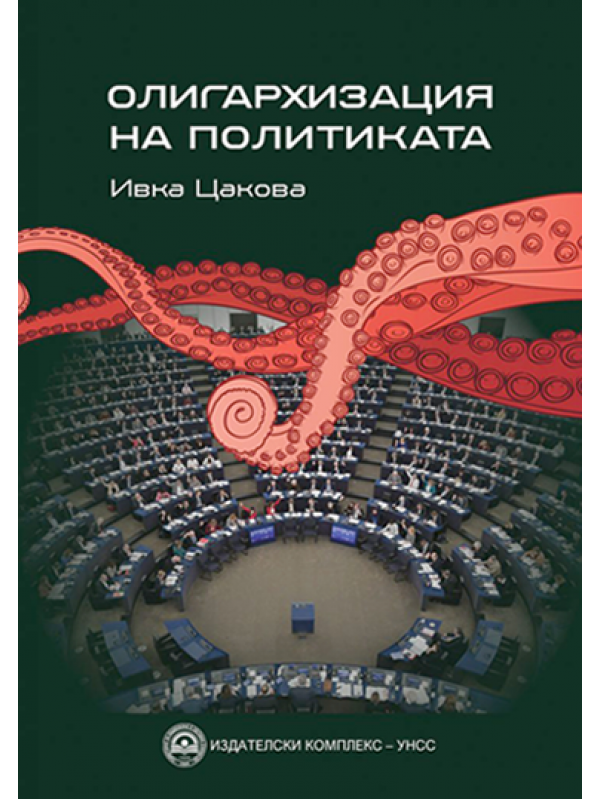Shopping Cart
0 item(s) - 0.00лв
Oligarchization of politics
Oligarchization of politics
Олигархизация на политиката
Category: Political science
Language: Bulgarian
In the history of mankind, rich minorities have always ruled. In ancient Greece they were called oligarchs and aristocrats, in the Middle Ages - feudal lords and popes, in the Renaissance — rich and noble patricians, lords; during the various stages of capitalism — capitalist or ruling class, elites, influential business circles, financial circles, etc. Today at the beginning of the 21st century a global oligarchy has formed, numbering 1% of the world's population - multibillionaires influencing the fate of mankind in the conditions of global neoliberal capitalism.
Table of contents
Contents
Предговор
Увод
I. Исторически форми и цикли на възход и упадък на олигархията
1. Тематизация на олигархията в Древна Гърция (Платон и Аристотел)
2. Историко-теоретична рамка за изследване
3. Исторически цикли на олигархизацията при капитализма (до Дж. Ариги)
3.1. Генуезки цикъл
3.2. Холандски цикъл
3.3. Британски цикъл
3.4. Американски цикъл
II. Теория и методология на олигархизацията на политиката
1. Основни изследователски подходи към олигархията и олигарсите
1.1. Системен анализ на света (World-system analysis)
1.2. Класов подход
1.3. Егалитаристки подход
1.4. Подход, базиран на властови ресурси (Power Resources Approach)
1.5. Други методи и подходи
2. Теории, отнасящи се до олигархизацията на политиката
2.1. Емпирична проверка на теории за актуалната политика в САЩ (Гилънс, Пейдж)
2.2. Теория за инклузивните и екстрактивни институции (Аджемоглу и Робинсън)
2.3. Концепция за голямата корпорация като властови играч (К. Крауч)
2.4. Икономически теории за неравенството (Стиглиц, Пикети)
2.5. Критически теории за неолиберална културна хегемония (Грамши, Бурдийо, Харви, Чомски)
3. Концептуален модел на олигархизация на политиката при неолиберален капитализъм
3.1. Терминологични уточнения (основни и сродни понятия)
3.2. От демократизация към олигархизация на политиката (процесът)
3.3. Олигархично превземане на държавата и нейните три власти (резултатът)
...
| Details | |
| Publisher | University of National and World Economy Publishing |
| Language | Bulgarian |
| Pages | 412 |
| Illustrations | b/w figures |
| Binding | paperback |
| ISBN | 978-619-232-367-7 |
| Creation date | 2020 |
| Size | 16 х 24 cm |
Write a review
Your Name:Your Review: Note: HTML is not translated!
Rating: Bad Good
Enter the code in the box below:










